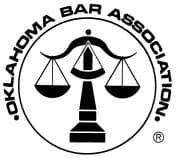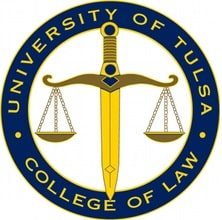
03 Jun What Does A Probate Lawyer Do? | Gary Crews
When I need help, I have learned that is wise to bring in an expert. If I have thorny problems with my yard, I consult an expert landscaper. If I don’t know how to use Snapchat, I ask my nephew. Experts help us navigate problems we are unfamiliar with and find solutions. Experts help us see things we would have otherwise missed and avoid costly mistakes. I’m thankful for experts.
If someone you know has passed away and you find yourself dealing with matters of their estate you will be very thankful for the help of an expert in those matters. A Tulsa probate lawyer is a state-licensed attorney who through education, training and experience can advise personal representatives of an estate, commonly called executors or beneficiaries on legal matters related to settling the details of an estate from a deceased person, often referred to as a decedent.
What does a probate lawyer do?
A probate lawyer assists executors of the estate (or “administrators in the case of no will) manage the probate process. Probate is defined as the official proving of a will. A probate lawyer helps determine how the assets of an estate should be handled and distributed. A probate lawyer also helps with estate planning, drafting wills, establishing living trusts, advising on powers of attorney and can even serve as an executor or administrator if needed. Probate lawyers are also sometimes referred to as estate or trust lawyers or probate attorneys. Handling an estate and going through probate can be a complicated, emotional, and overwhelming process for many people. Probate lawyers provide expert counsel to help make the process go smoother and to ensure that the estate is handled correctly and in accordance with the known will of the decedent. Probate lawyers can advise powers of attorney on a variety of issues including.
- Management of life insurance proceeds
- Property appraisals and valuations
- Locating and securing decedents assets
- Giving counsel on how to settle the decedent’s debts and bills
- Prepare and file needed legal documents for probate court
- Manage the account of the estate
- Determine if any estate taxes are owed
- Settling Disputes between executors and beneficiaries
- Retitling the decedent’s real estate into the names of the estate beneficiaries if the property is not being sold
- Making appropriate elections on retirement plans, including IRAs 401(k)s
When do I need a probate lawyer?
A probate attorney can be helpful for any matter concerning the probate court system. Every state is different, some states assign probate duties to the trial court and some have their own separate probate court that is used exclusively for probate matters. If you are an executor of a will or have the power of attorney than a probate lawyer may be very useful to you in navigating the complicated issues surrounding handling the assets of the estate.
Ways A Probate Lawyer Can Help You
A probate lawyer takes a personal representative through the entire probate process from start to finish. The process will differ depending on whether the decedent died without a will and testament. We will talk more about both of those differences in a moment. Sometimes if there is a conflict between the beneficiary and the representative of the estate or if they are unfamiliar with each other a probate lawyer may also be hired to give counsel to the beneficiary of an estate. Some probate lawyers specialize in challenges to the decedents’ last will and testament through a will contest. They may represent either beneficiaries or representatives in separate legal suites regarding the estate. Probate lawyers that specialize in these matters are commonly referred to as probate litigators or estate and trust litigators.
Handling An Estate Without A Will
When a person dies without leaving a will and testament it is referred to as dying intestate. When a person dies and leaves a will it is called testate. Handling the final affairs of an estate without a will is called intestate succession. The lack of a will and testament to dictate the final affairs of an estate can create confusion regarding what state laws dictates should happen to the estate’s assets. Not all estate assets are passed by a will, many cannot be including.
Life Insurance Proceeds
Property Held In A Living Trust
Funds in a 401(k), IRA, or a retirement fund for which a beneficiary was named
Funds in a payable-on-death (POD) bank account
Stocks or securities held in a transfer-on-death (TOD) account
Who inherits these types of property will be determined by the documents stating the beneficiary designation or co-ownership.
Handling the affairs of an estate without a will (intestate succession) will be determined according to each state’s probate laws. Typically there are classes of heirs which will determine the order and way that the assets of the estate are distributed. Surviving spouses, children, parents and blood relatives are the most common and obvious class of heirs. In most cases, distant relatives will only take assets if there are no surviving spouse or children. In the case of there being no surviving family members most of the time, all of the assets will go to the state. Friends and charities do not receive anything typically in intestate succession.
When there is no will, the probate court will typically appoint a person to manage the probate process. This is typically done by appointing an individual as a personal representative of the estate. The personal representative of the estate is also called an administrator. The administrator has the same responsibilities as an executor named in a will and has to determine the value of the estate, pay debts and taxes and handle other expenses and issues.
A probate lawyer advises the personal representative of the estate or manages things on their behalf. A probate lawyer helps to make the probate process run smoother, advise the representative on the best way to handle issues, and help resolve conflicts that may arise between the representative and other individuals involved in the matters of the estate.
Handling An Estate With A Will
When there is a will for the decedent it is called testate succession. A probate lawyer will help evaluate the will and testament and other official documents of the estate and advise the executor on decisions regarding the probate process.
If the will and testament are contested the probate attorney can help represent the executor and defend the will if needed. The executor of the estate can rely on a probate attorney to advise them in all matters regarding the affairs of the estate. A probate lawyer may determine taxes or debts that are owed, help to coordinate the sale of property assets, or manage the estate checkbook and expenses.
Estate Planning
You may have heard the saying, “An ounce of prevention is worth a pound of cure”, or, “failing to plan is planning to fail.” These may be old cliches, but they ring true nonetheless. It is vital and wise for every person to look ahead and set their affairs in order for what happens after they die. Estate planning can be an overwhelming issue to think about. Not only does it require facing one’s mortality, but it also requires thinking in a systematic and methodical way about the issues and questions that may arise after death that will need to be addressed in an estate plan.
A probate lawyer helps you to plan ahead in a way that helps your wishes to be carried out for your estate and affairs so that you can avoid leaving confusing issues for your loved ones. A probate attorney helps you write a will and testament and think through the affairs of your estate in a methodical and organized way.
Hiring a probate lawyer to help you plan your estate and write your will and testament is a great way to apply ancient wisdom and principles to your life.
“A wise man looks ahead.” -Proverbs 13:16
“Plans fail for lack of counsel, but with many advisers, they succeed.” – Proverbs 15:22
A probate lawyer serves as a counselor helping you look ahead into the future and create a plan for success.
When do I need to hire a probate lawyer?
If you have been named the executor of a will it is a wise idea to consult the advice of a probate lawyer to make sure that you are prepared to handle the affairs of the estate properly. You may also need to hire a probate lawyer if you are a beneficiary of a will in conflict with the executor on how the estate should be handled and need estate litigation. Lastly, if you have not yet written a will and testament for your own affairs you may wish to consider talking to a probate lawyer on how to plan for your future.
Do I need to hire a probate lawyer if there is no will?
Even in the case of there not being a will for the estate a probate lawyer can assist the personal representative of the estate deal with the affairs of the estate and carry out the probate process.







